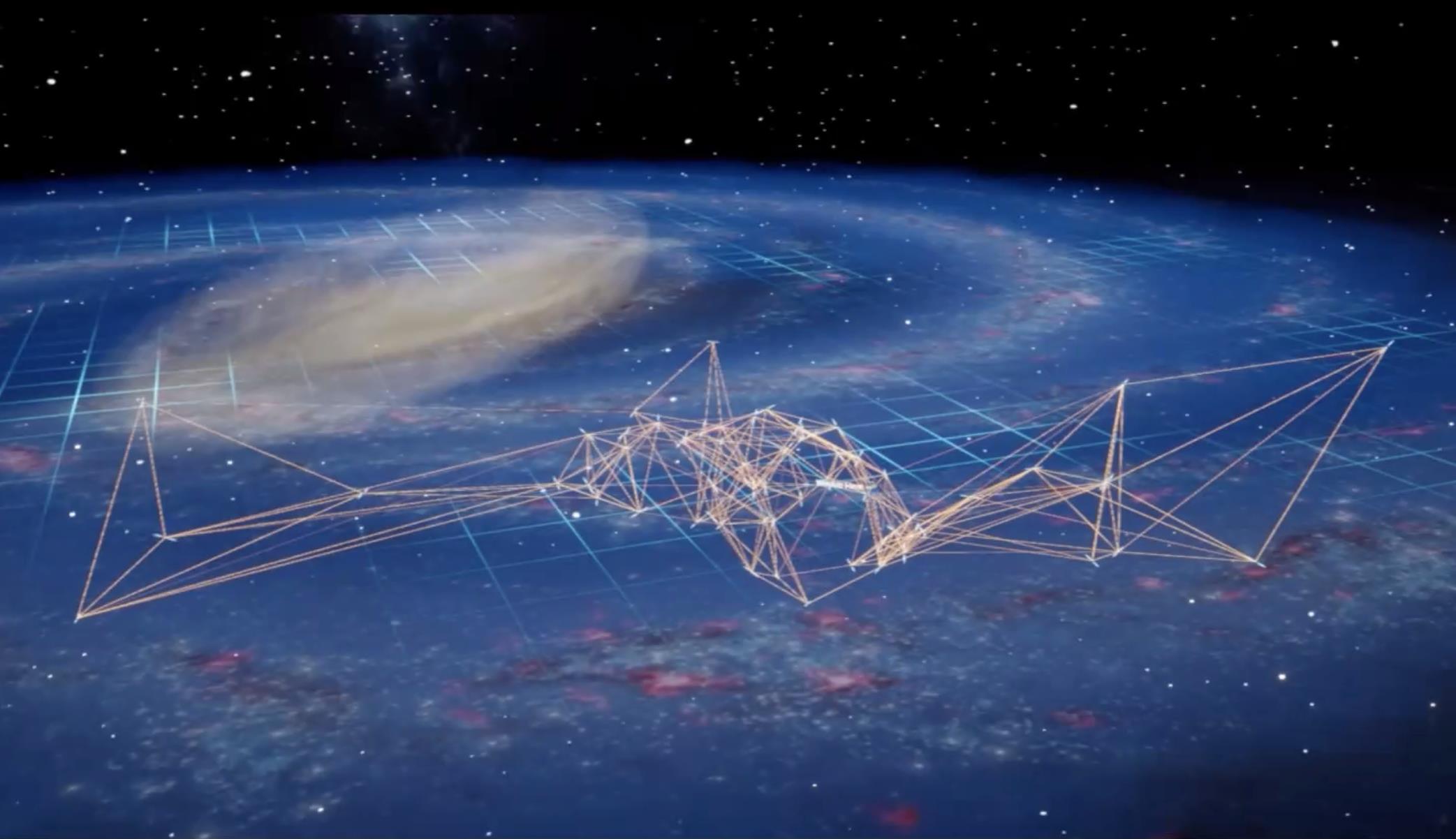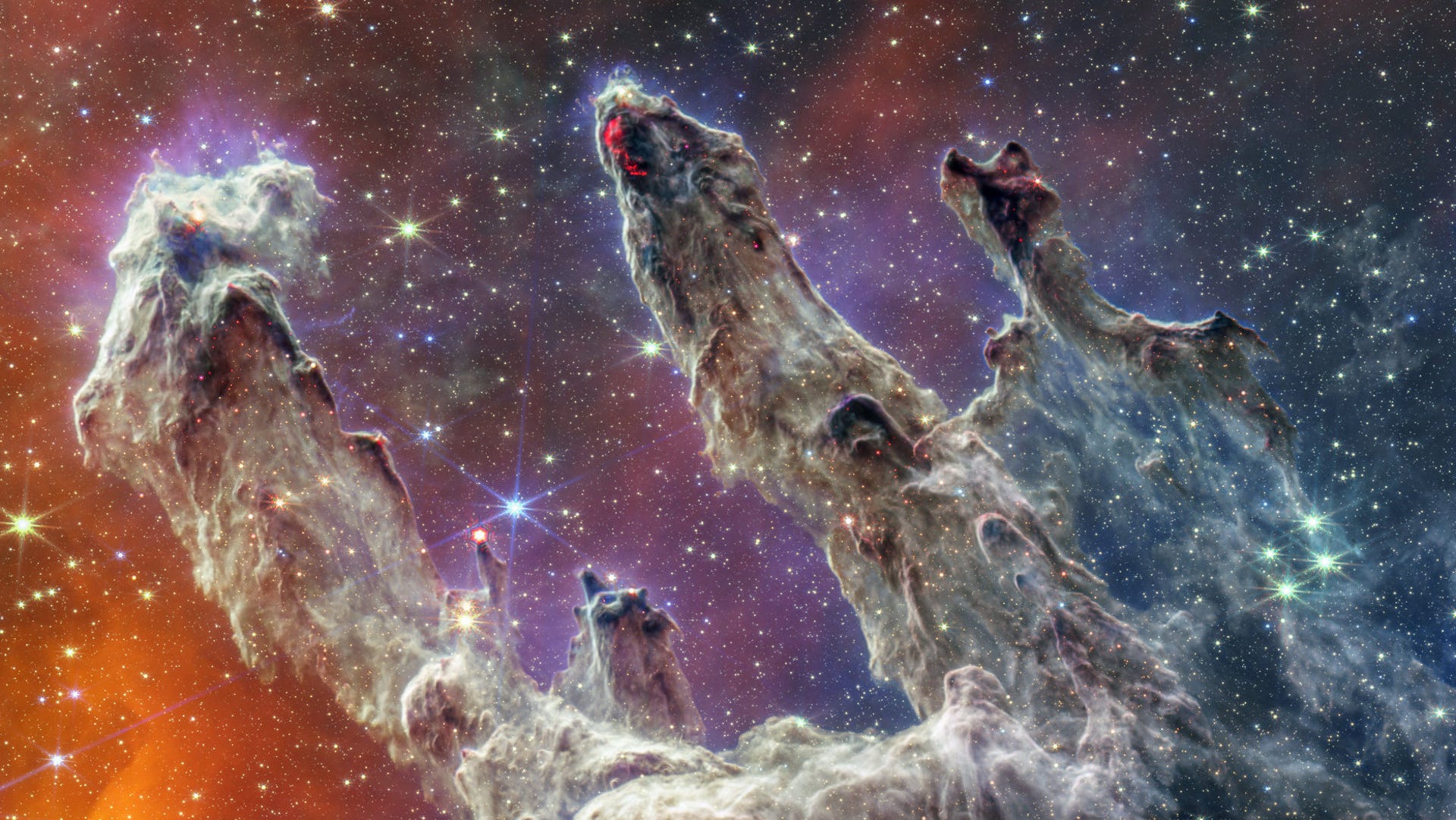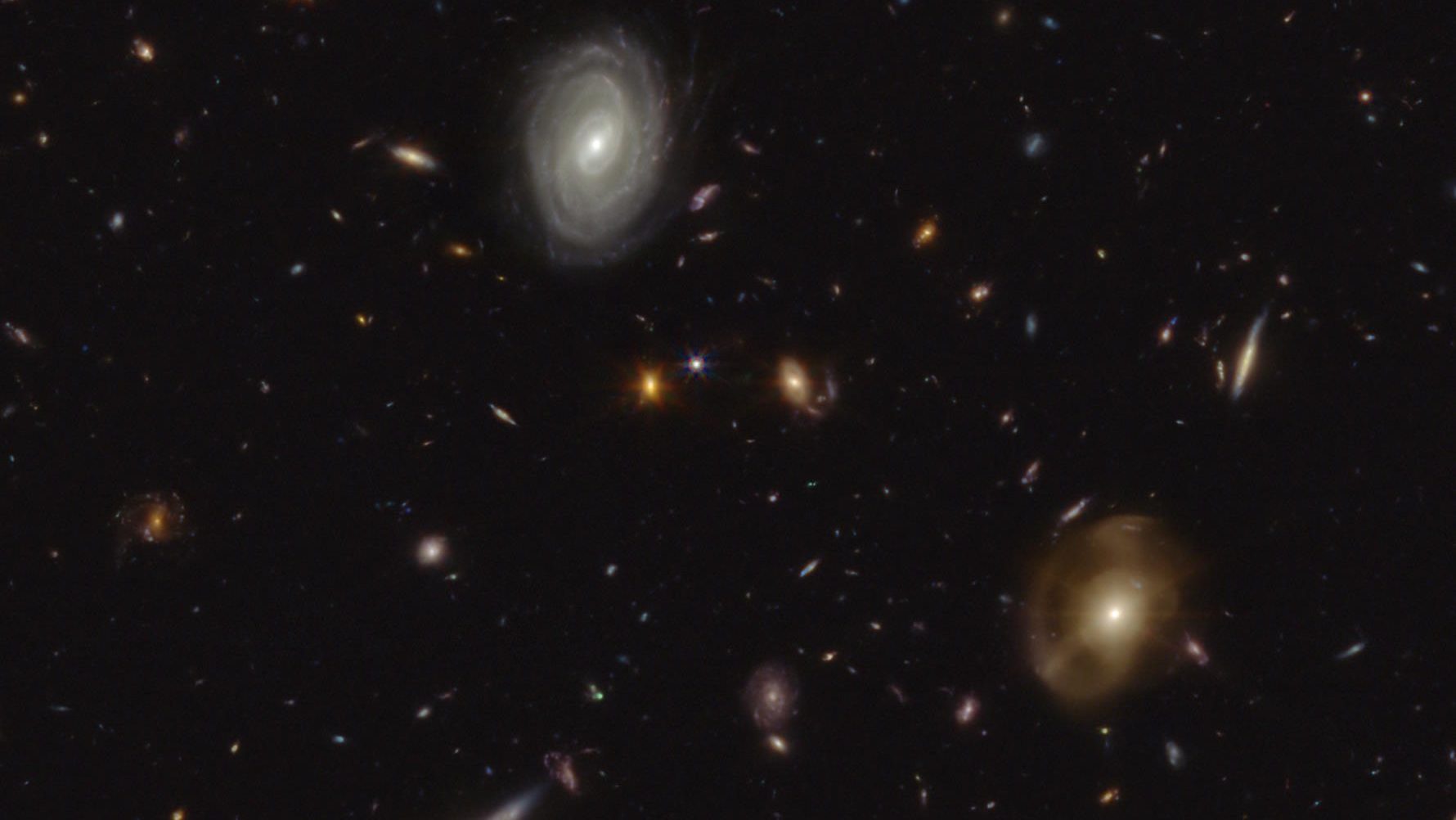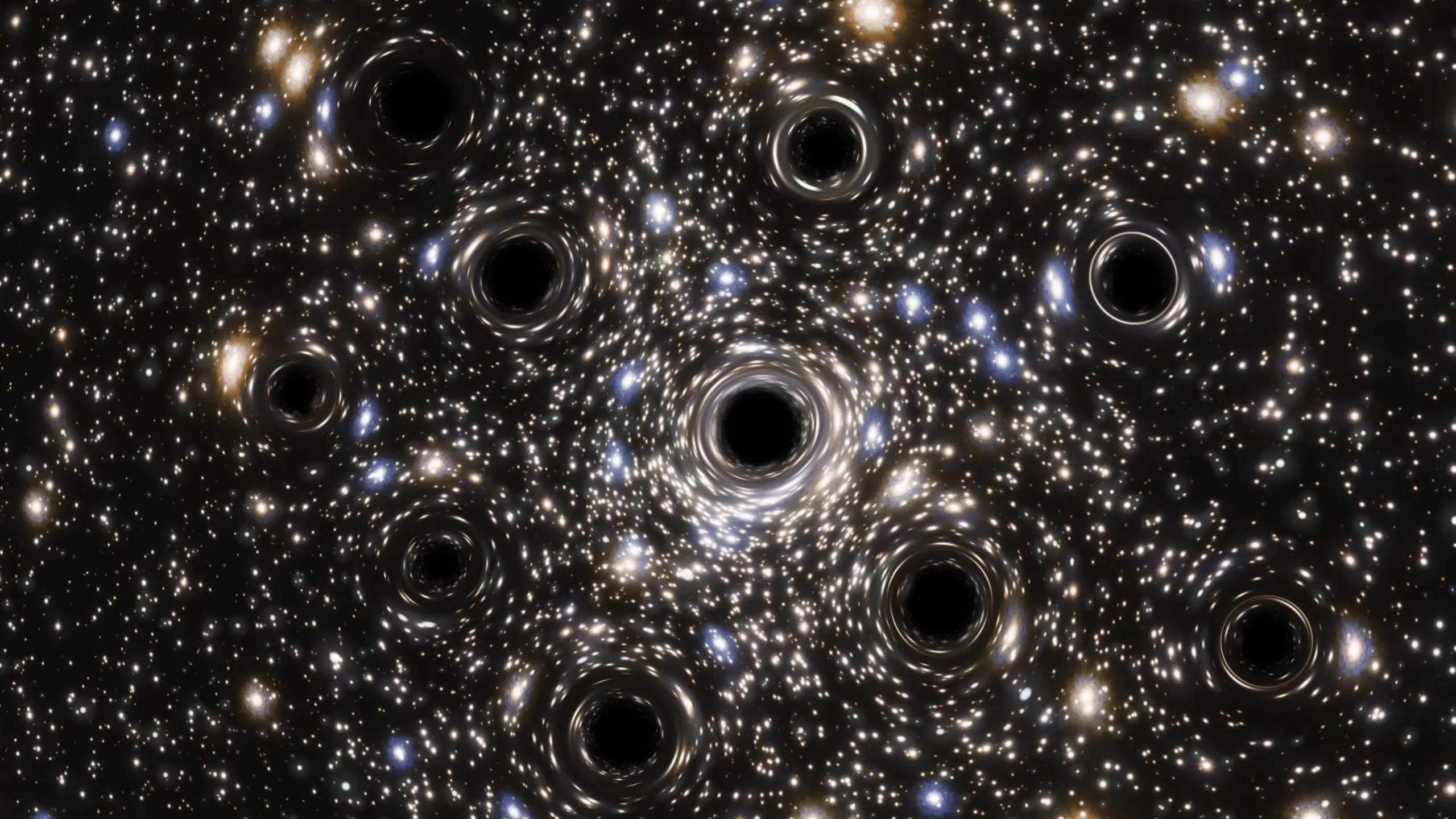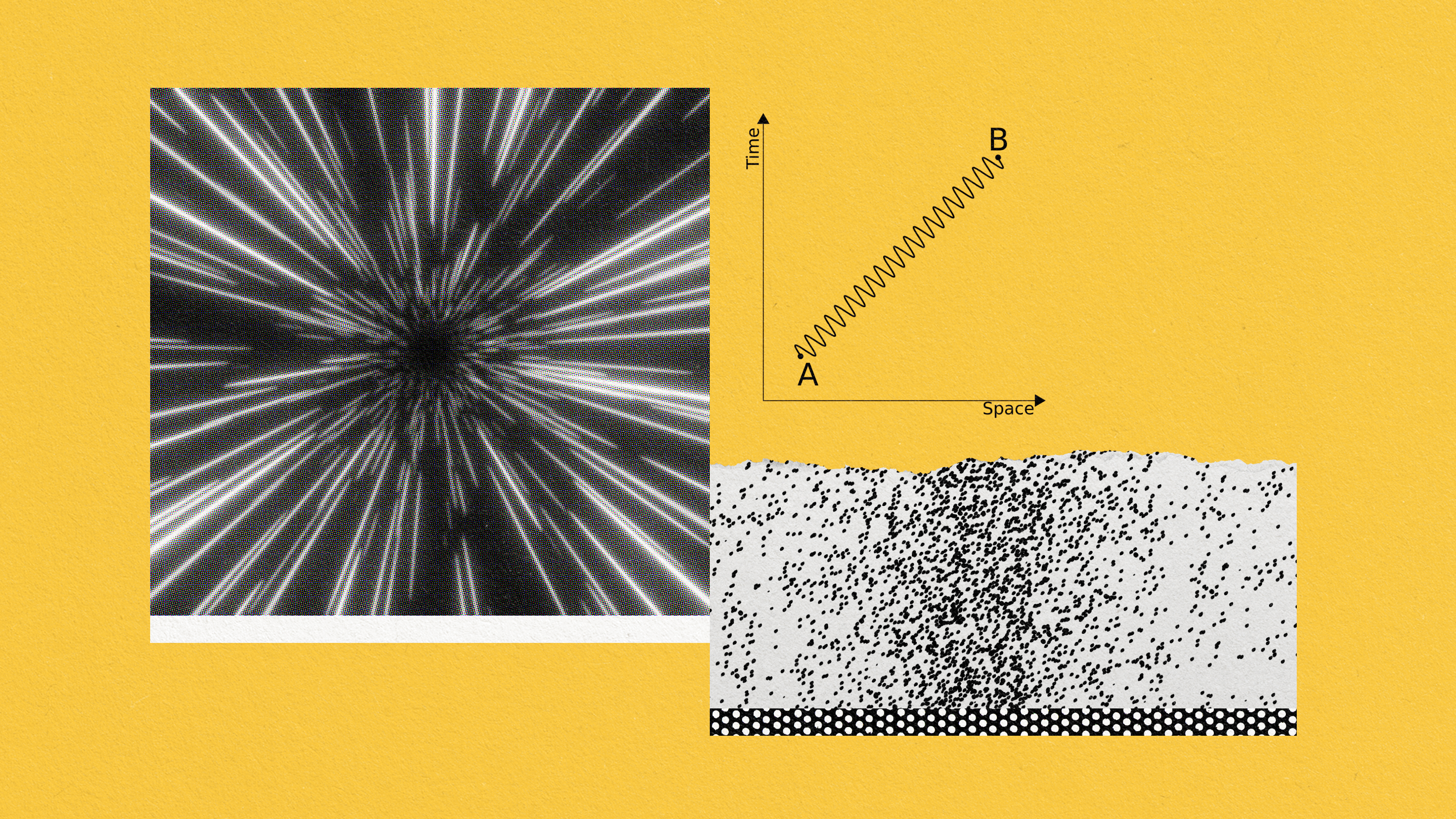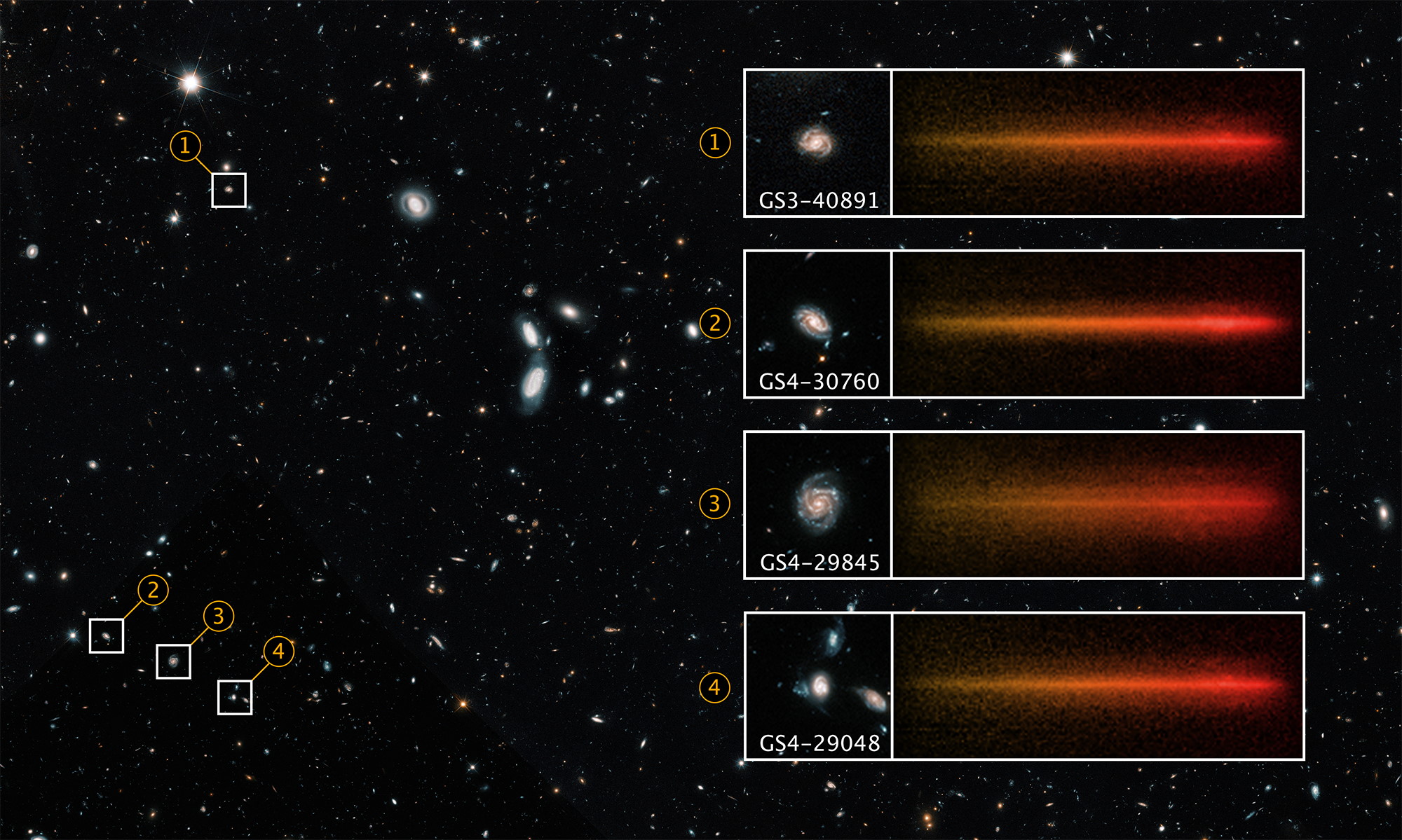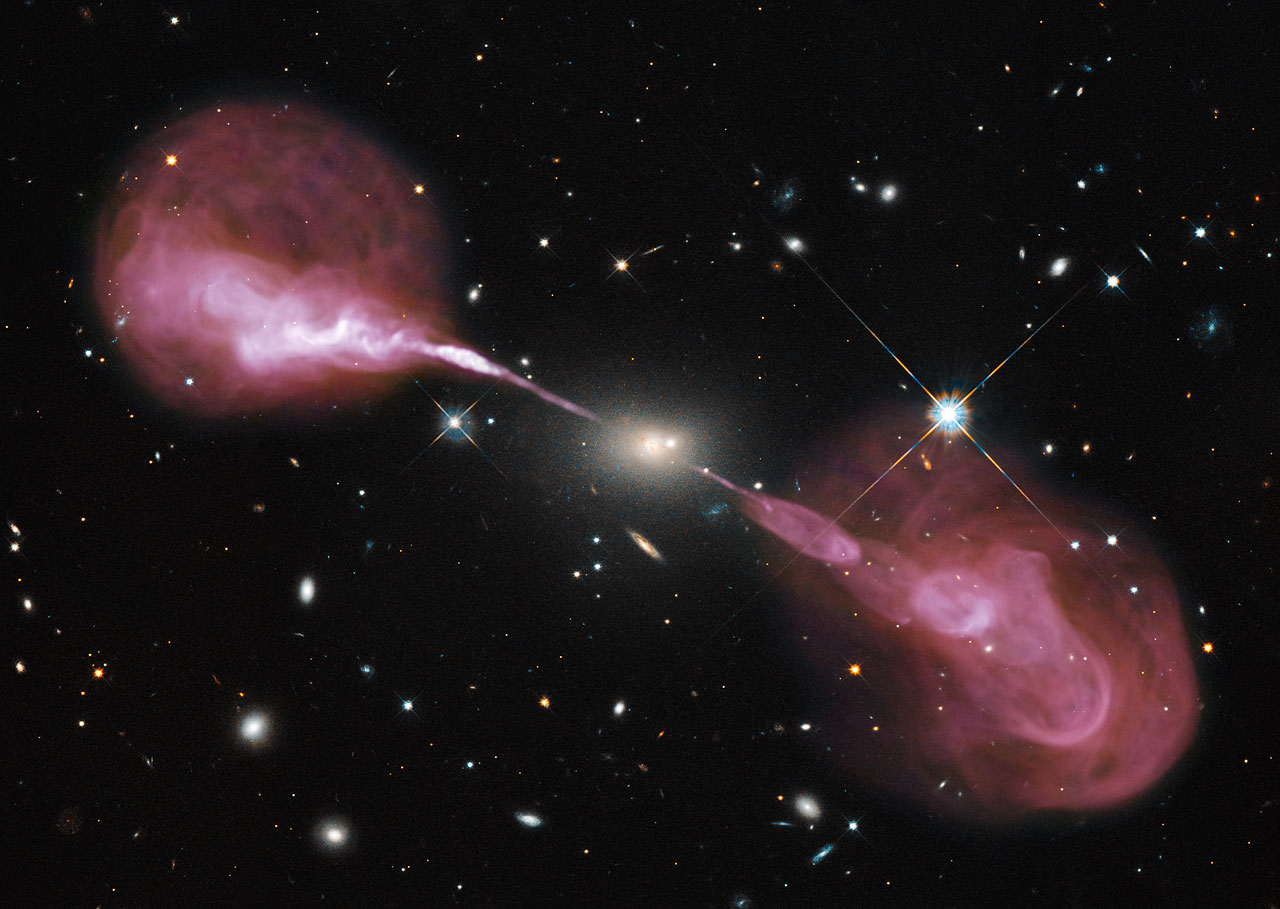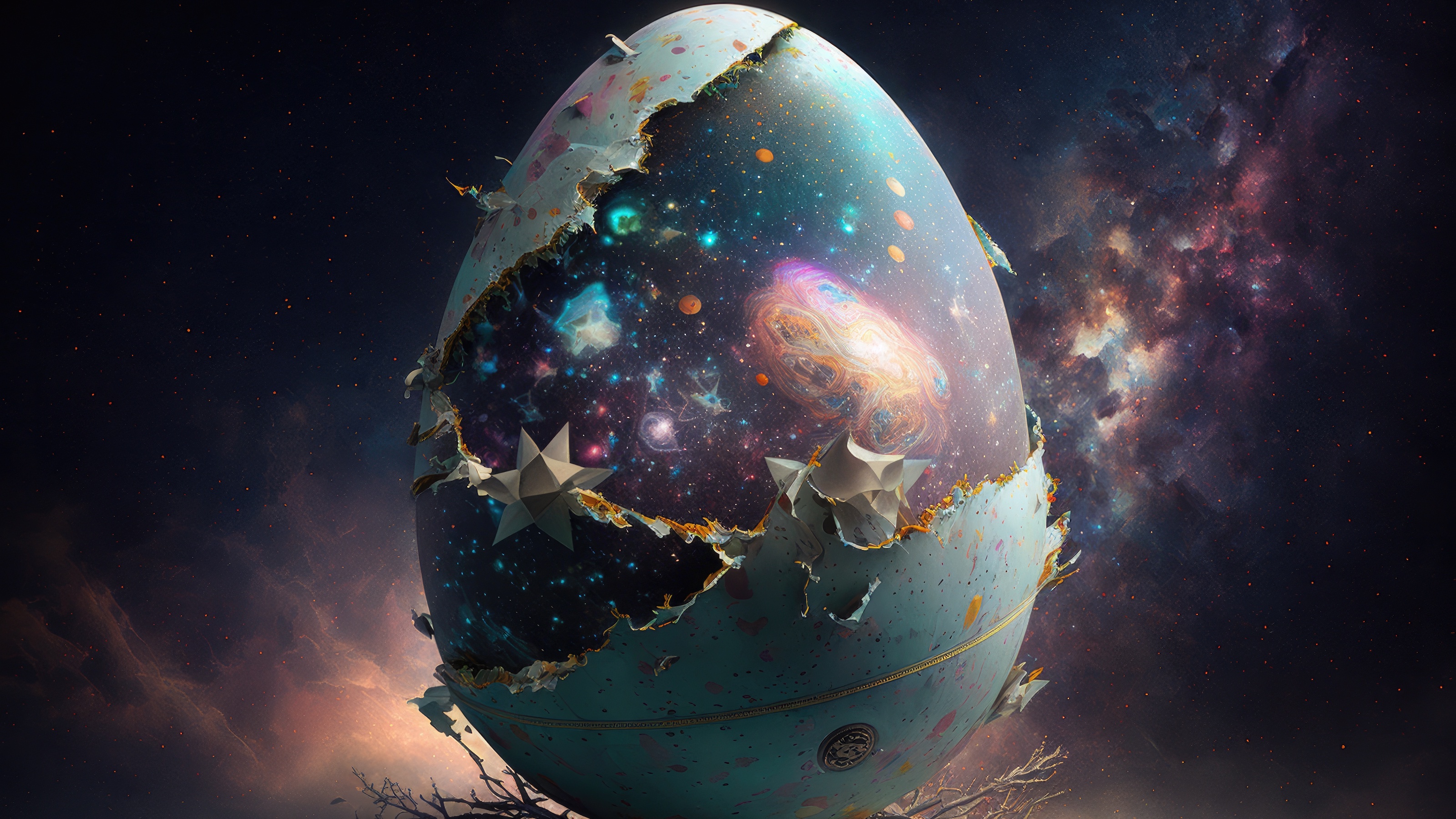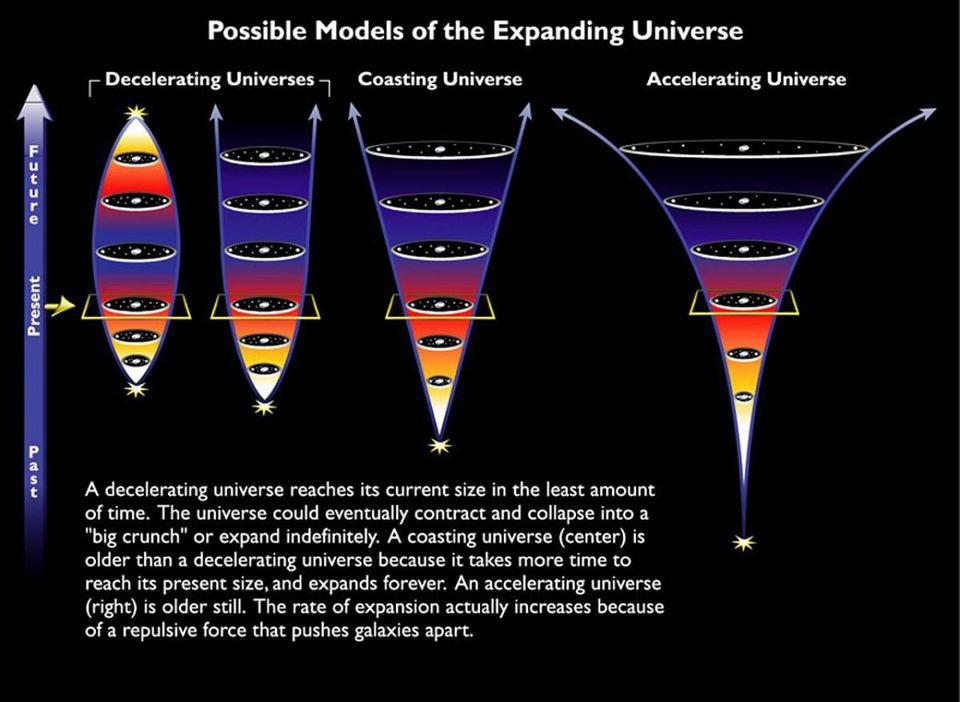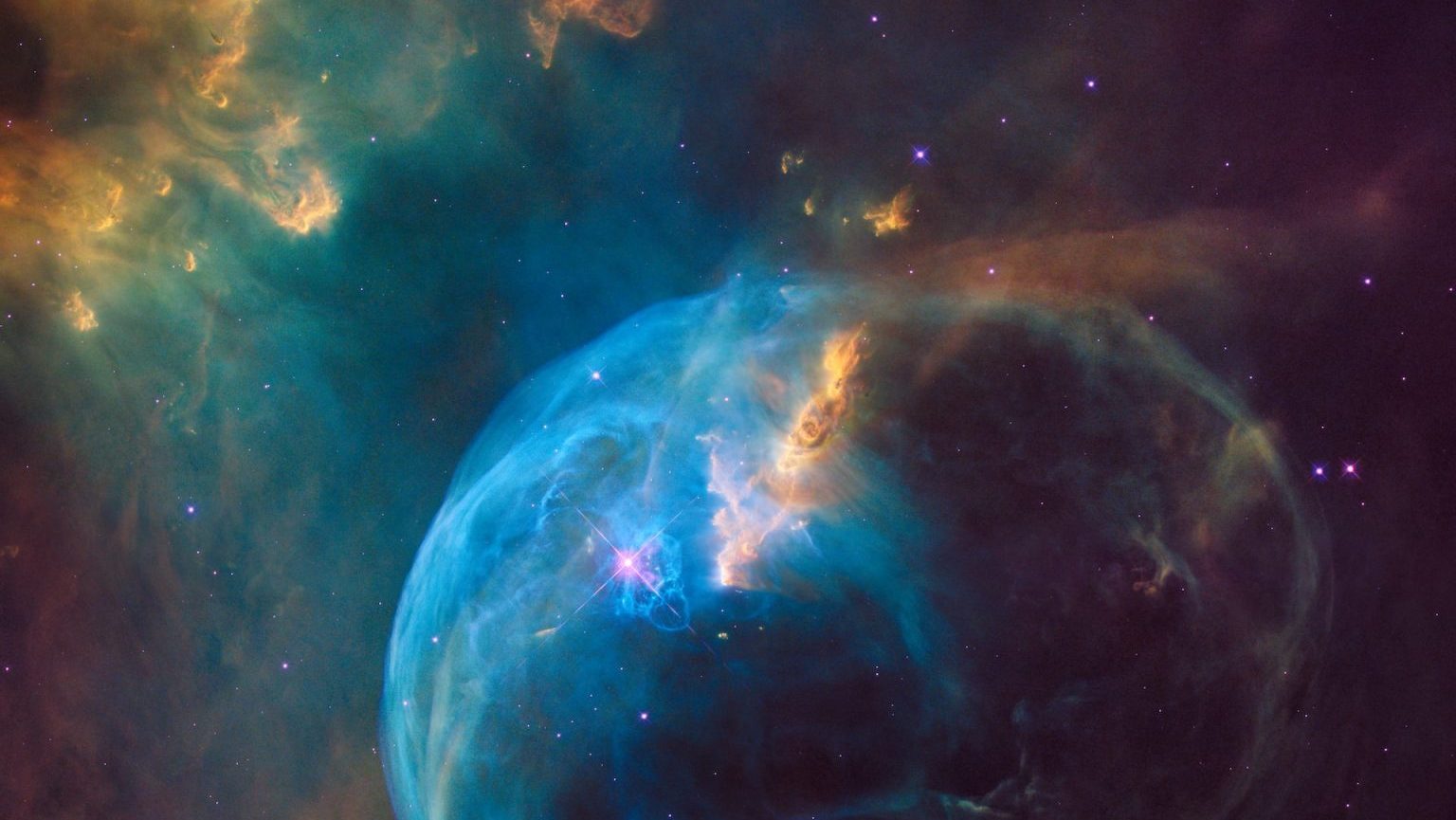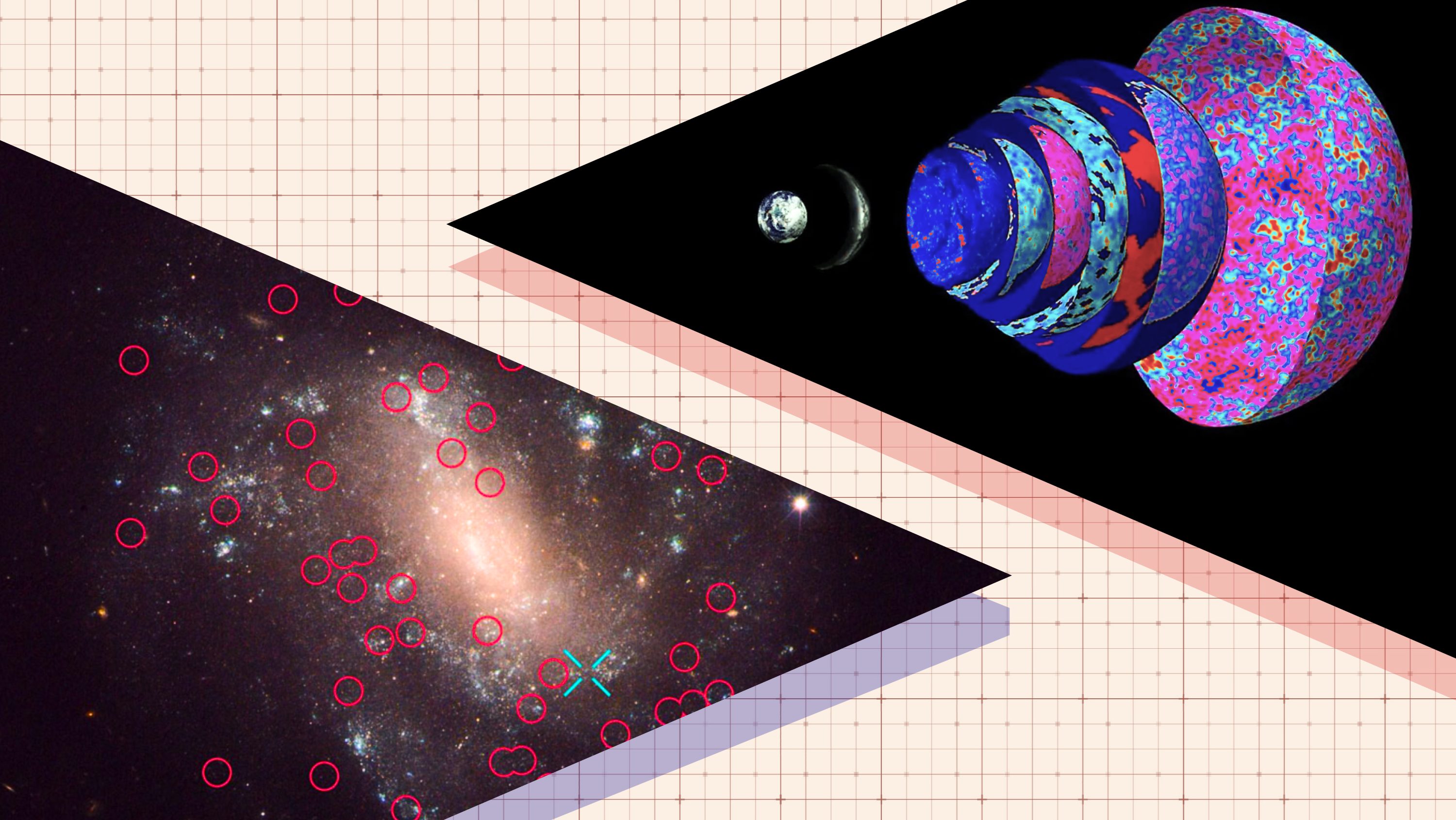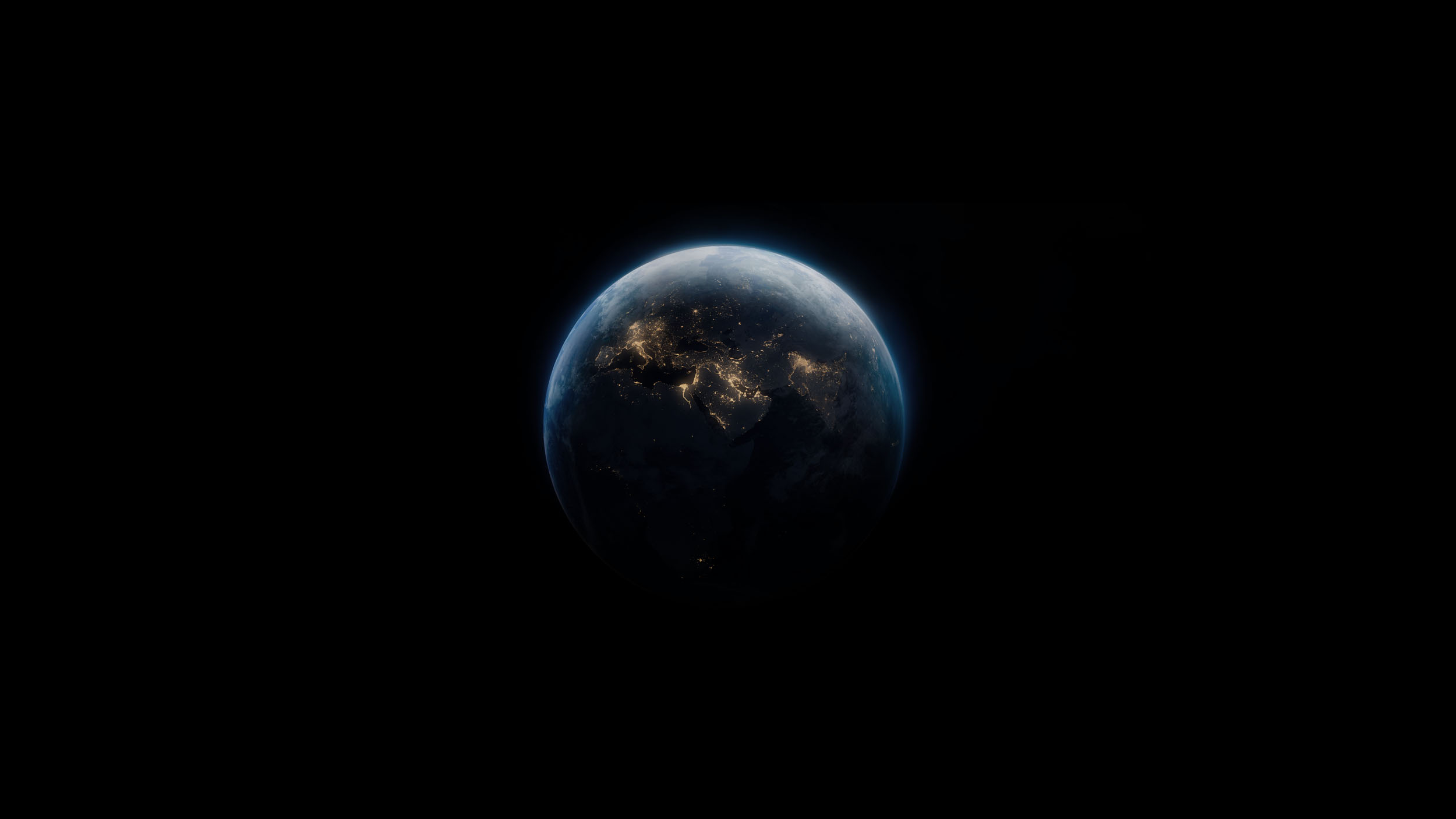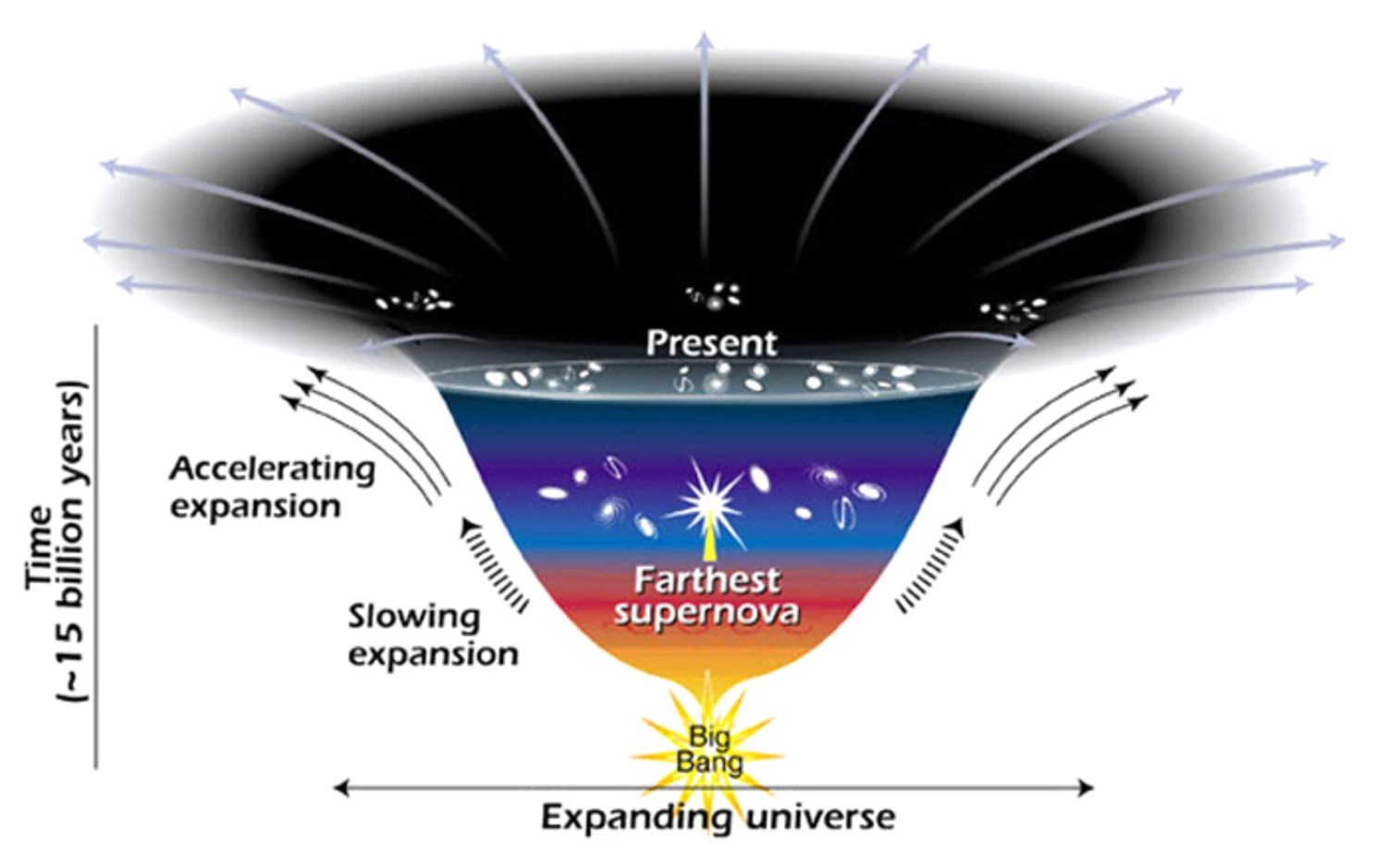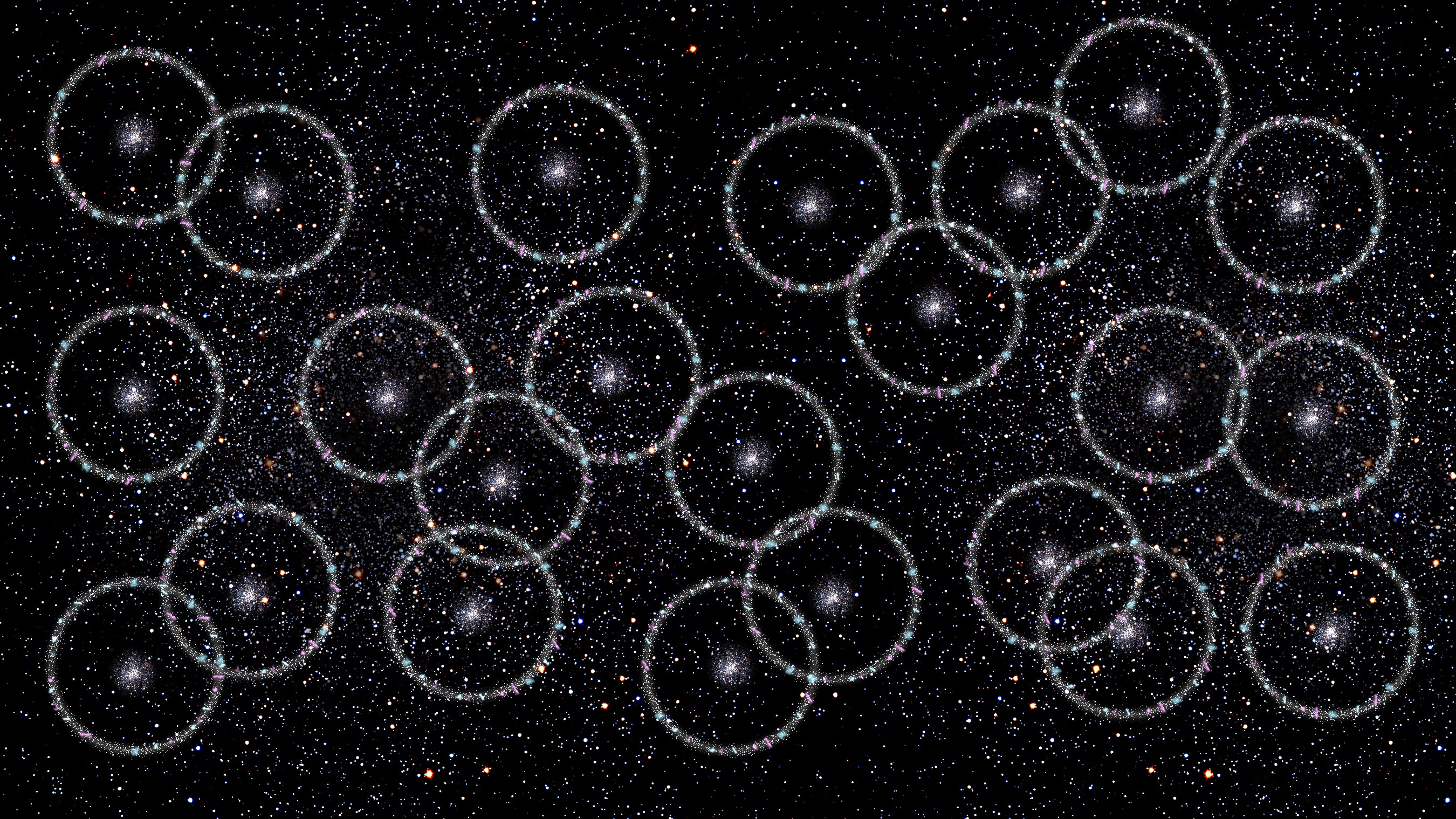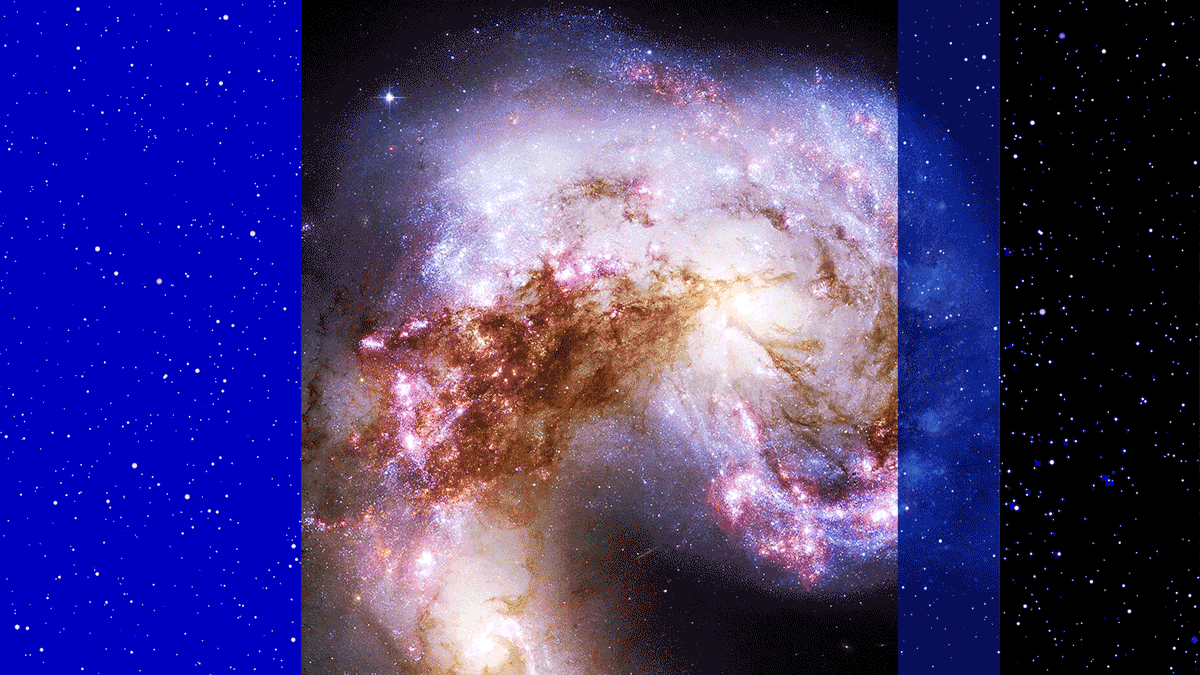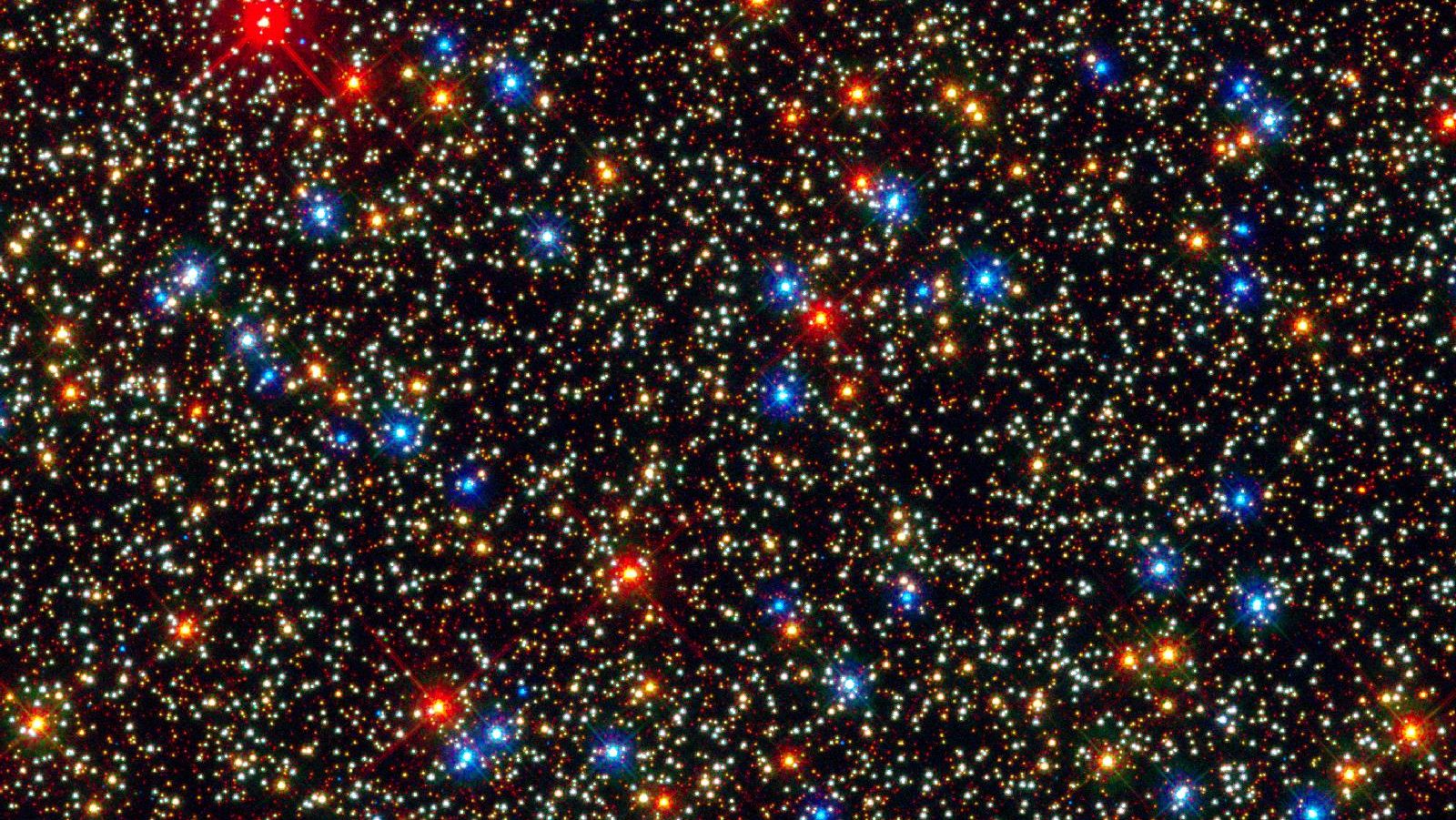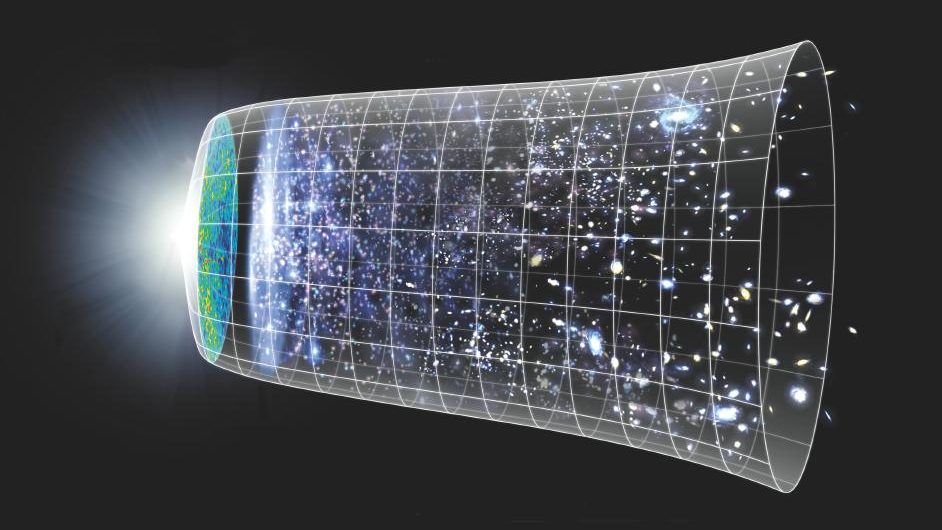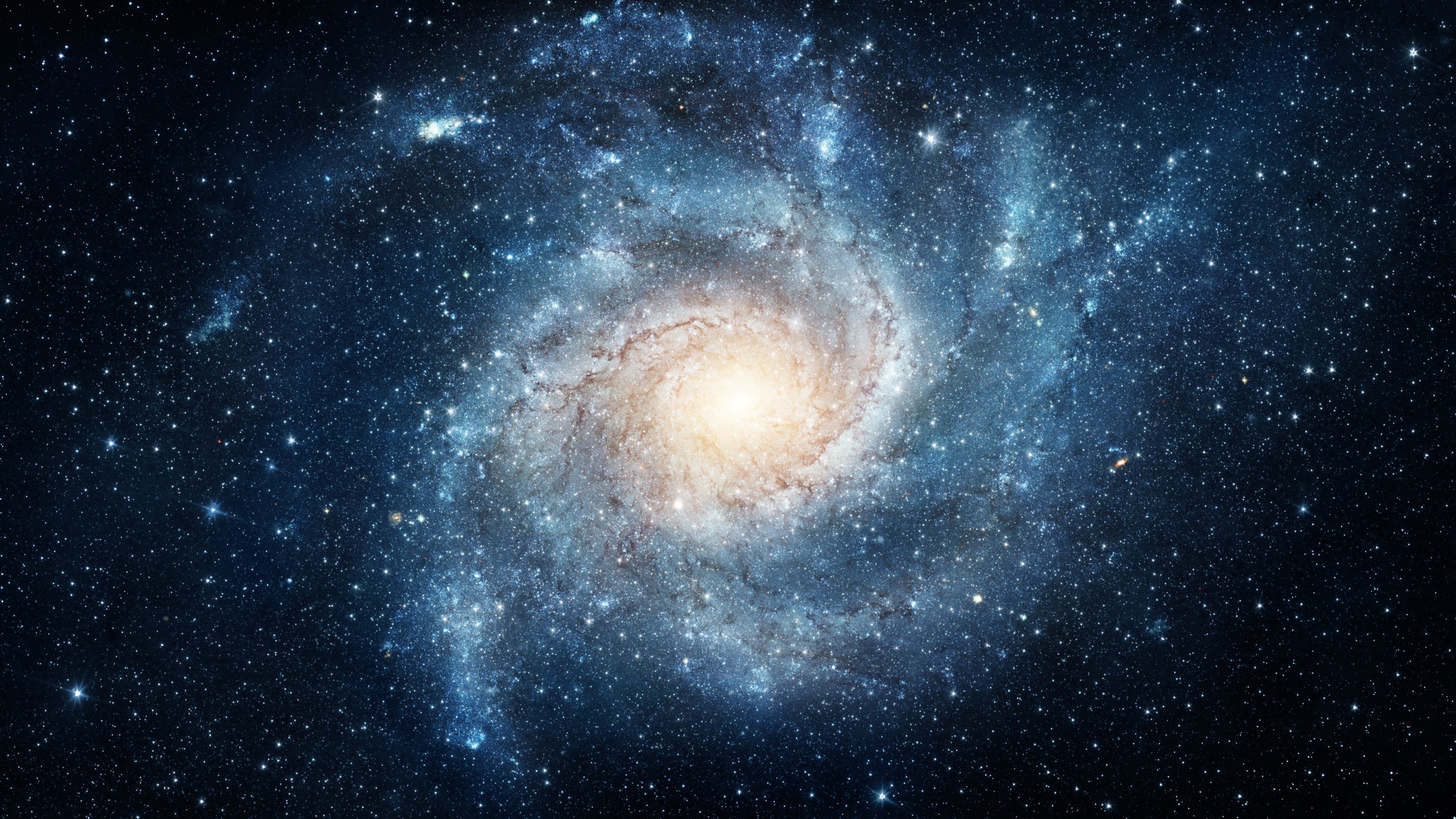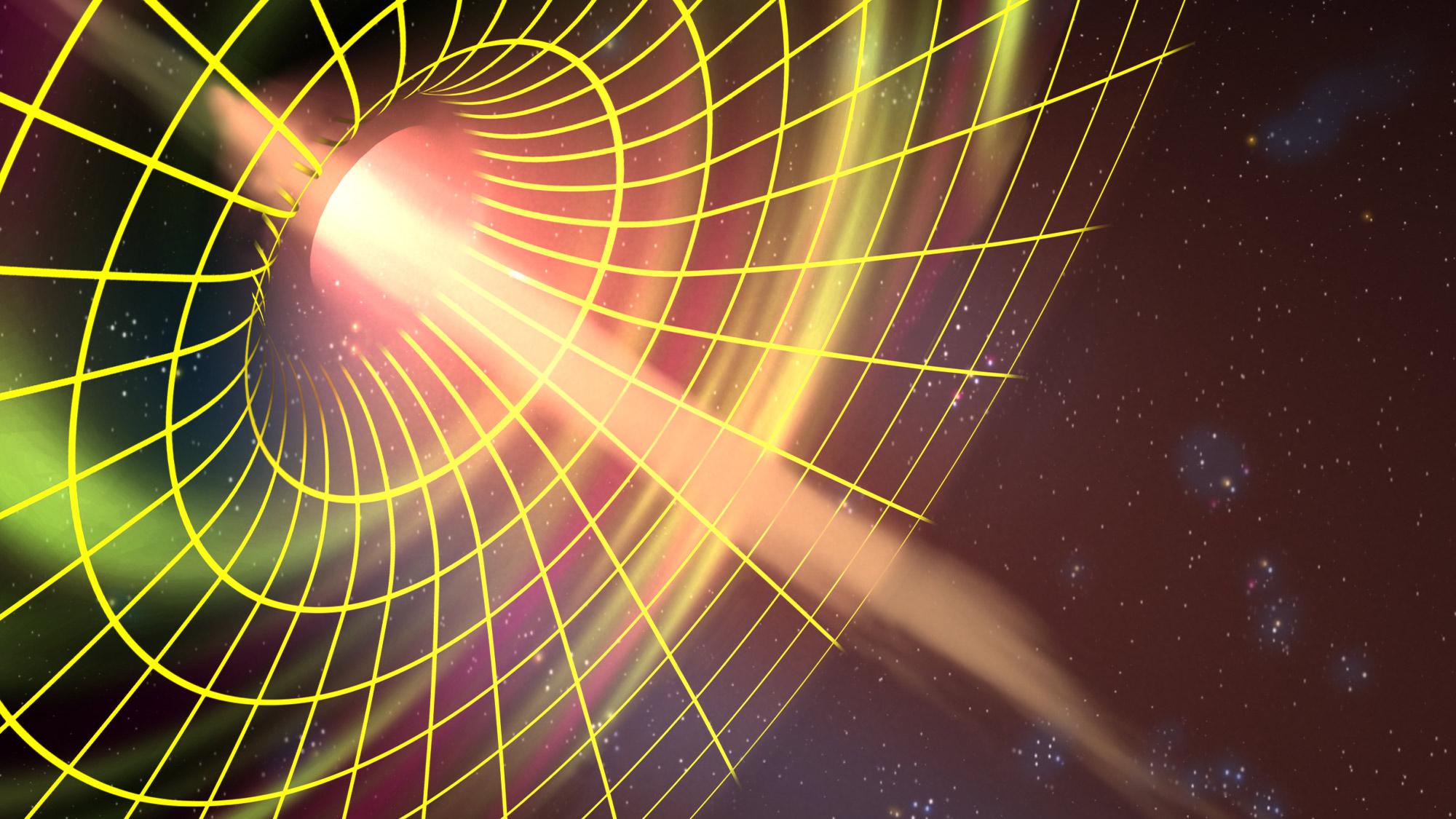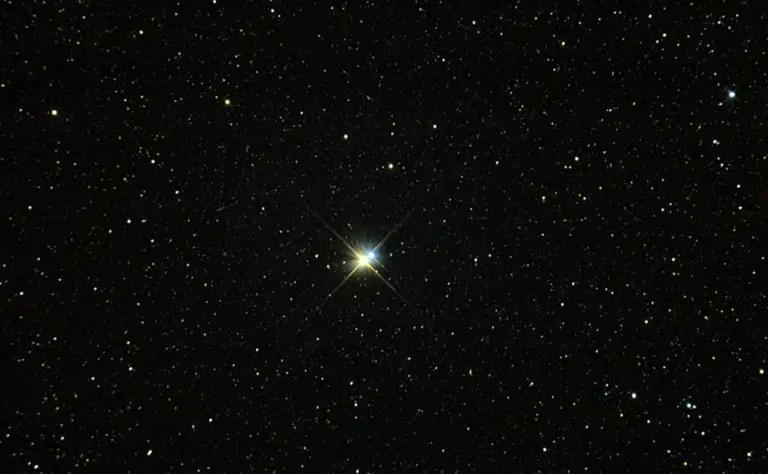After 15 years of monitoring 68 objects known as millisecond pulsars, we’ve found the Universe’s background gravitational wave signal!
Search Results
You searched for: Universe
Yes, the Universe is expanding, but if you’ve ever wondered, “How fast is it expanding,” the answer isn’t in terms of a speed at all.
A deep dive into the chaotic journey of star formation.
Joseph Campbell argued that nearly every myth can be boiled down to a hero’s journey. Was he right?
While humanity has been skywatching since ancient times, much of our cosmic understanding has come about only recently. Very recently.
For the first time, astronomers have created a data-driven estimate for how many black holes are in our Universe: more than anyone expected.
From a photon’s viewpoint, the Universe is timeless and dimensionless.
Because of dark energy, distant objects speed away from us faster and faster as time goes on. How long before every galaxy is out of reach?
Galaxies don’t simply feed their central supermassive black holes, but the activity generated inside affects the entire galaxy and more.
What would become the Big Bang model started from a crucial idea: that the young Universe was denser and hotter.
Dark energy is one of the biggest mysteries in all the Universe. Is there any way to avoid “having to live with it?”
Your life’s memories could, in principle, be stored in the universe’s structure.
A proponent of panpsychism argues moral truth is inherent in consciousness.
A cute mathematical trick can “rescale” the Universe so that it isn’t actually expanding. But can that “trick” survive all our cosmic tests?
In the expanding Universe, different ways of measuring its rate give incompatible answers. Nobel Laureate Adam Riess explains what it means.
Two scientists recently wagered a bottle of whiskey. The bet? Whether we’ll find evidence of advanced extraterrestrial life in the next 15 years.
A long view of biological survival might point us to new possibilities for finding life elsewhere in the Universe.
Just 13.8 billion years after the hot Big Bang, we can see objects up to 46.1 billion light-years away. No, this doesn’t violate relativity.
A spherical structure nearly one billion light-years wide has been spotted in the nearby Universe, dating all the way back to the Big Bang.
Fantasy, meet statistics: The census comes to Middle-earth!
Today, the star-formation rate across the Universe is a mere trickle: just 3% of what it was at its peak. Here’s what it was like back then.
With ~400 billion stars in the Milky Way and 6-20 trillion galaxies overall, that makes for a lot of stars. But not as many as you’d think.
The most common visual depictions of the history of the Universe show the Big Bang as a growing tube with an “ignition” point. Why is that?
In 1924, Edwin Hubble found proof that the Milky Way isn’t the only galaxy in the Universe.
The Universe is expanding, and the Hubble constant tells us how fast. But how can it be a constant if the expansion is accelerating?
In all the Universe, only a few particles are eternally stable. The photon, the quantum of light, has an infinite lifetime. Or does it?
It’s been 100 years since we discovered that the Universe was expanding. But if it’s expanding, then what is it expanding into?
The standard picture of our Universe is that it’s dominated by dark matter and dark energy. But this alternative is also worth considering.
The visible Universe extends 46.1 billion light-years from us, while we’ve probed scales down to as small as ~10^-19 meters.
Eric Olson — CEO and co-founder of Consensus — takes his cues from the university of legendary coaches.
